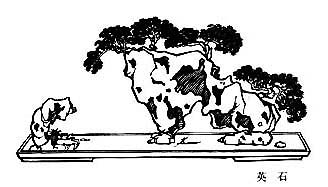Lun Yu 
 – Les Entretiens de Confucius
– Les Entretiens de Confucius
Le Maître échange propos, anecdotes, brèves paraboles et maximes avec ses disciples. Tr. Couvreur (fr), Legge (en) et Lau (en).
Lunyu XVII. 6. (453)
Tzeu tchang demanda à Confucius en quoi consiste la vertu d'humanité. Confucius répondit : « Celui-là est parfait qui est capable de pratiquer cinq choses partout et toujours. » Tzeu tchang dit : « Permettez-moi de vous demander quelles sont ces cinq choses ? – Ce sont, répondit Confucius, la déférence, la grandeur d'âme, la sincérité, la diligence et la générosité. La déférence inspire le respect ; la grandeur d'âme gagne les cœurs ; la sincérité obtient la confiance ; la diligence exécute des œuvres utiles ; la générosité rend facile la direction des hommes. »
Couvreur XVII.6.
Five things the practice of which constitutes perfect virtue.
Tsze-chang asked Confucius about perfect virtue. Confucius said, "To be able to practice five things everywhere under heaven constitutes perfect virtue." He begged to ask what they were, and was told, "Gravity, generosity of soul, sincerity, earnestness, and kindness. If you are grave, you will not be treated with disrespect. If you are generous, you will win all. If you are sincere, people will repose trust in you. If you are earnest, you will accomplish much. If you are kind, this will enable you to employ the services of others.
Legge XVII.6.
Tzu-~chang asked Confucius about benevolence. Confucius said, 'There are five things and whoever is capable of putting them into practice in the Empire is certainly "benevolent".' 'May I ask what they are?' 'They are respectfulness, -tolerance, trustworthiness in word, quickness and generosity. If a man is respectful he-will not be treated with insolence. If he is tolerant he will win the multitude. If he is trustworthy in word his fellow men will entrust him with responsi- bility. If he is quick he will achieve results. If he is generous he will be good enough to be put in -a position over his fellow men.'
Lau [17:6]
上に立つ者は、五つの徳を身につけることだ。それを実践することが仁である。
恭(きょう)なれば侮られず。(礼儀正しければ人々に敬われる。)
寛(かん)なれば衆を得。(寛大であれば人望が得られる。)
信(しん)なれば人任ず。(誠実だと人から頼りにされる。)
敏(びん)なれば功あり。(機敏であれば仕事がうまくいく。)
恵(けい)なればもって人を使うに足る。(思いやりがあれば人々は喜んでその命令に従うであろう。)

Les Entretiens de Confucius – Lun Yu XVII. 6. (453) – Chinois off/on – Français/English
Alias the Lunyu, the Lun Yü, the Analects, les Entretiens du maître avec ses disciples.
Le Canon des Poèmes, Les Entretiens, La Grande Étude, Le Juste Milieu, Les Trois Caractères, Le Livre des Mutations, De la Voie et la Vertu, 300 poèmes Tang, L'Art de la guerre, Trente-six stratagèmes
Bienvenue, aide, notes, introduction, table.
Index – Contact – Haut de page























